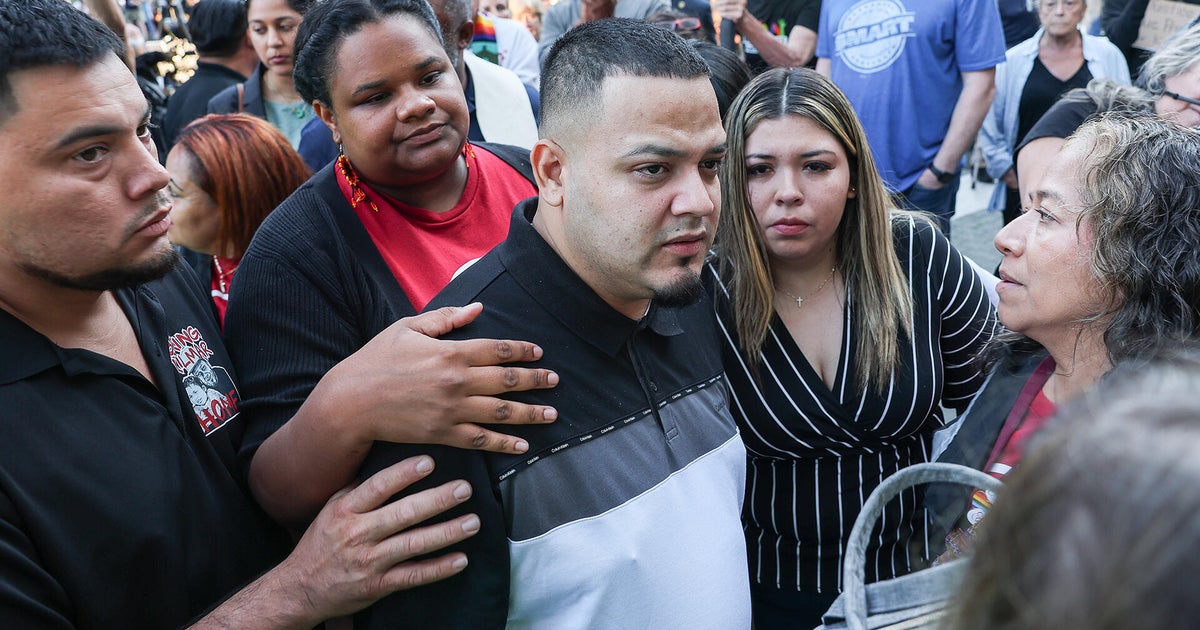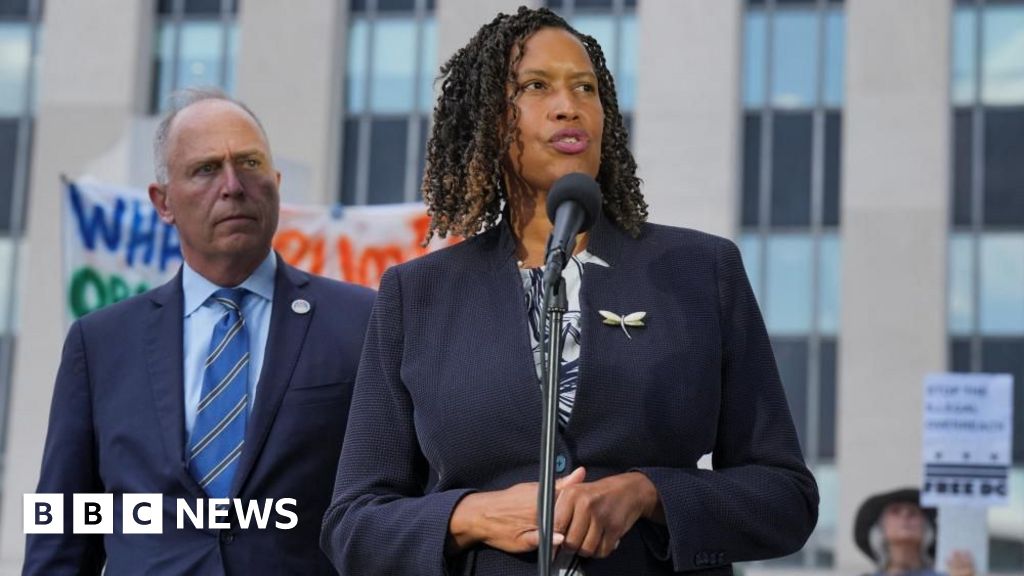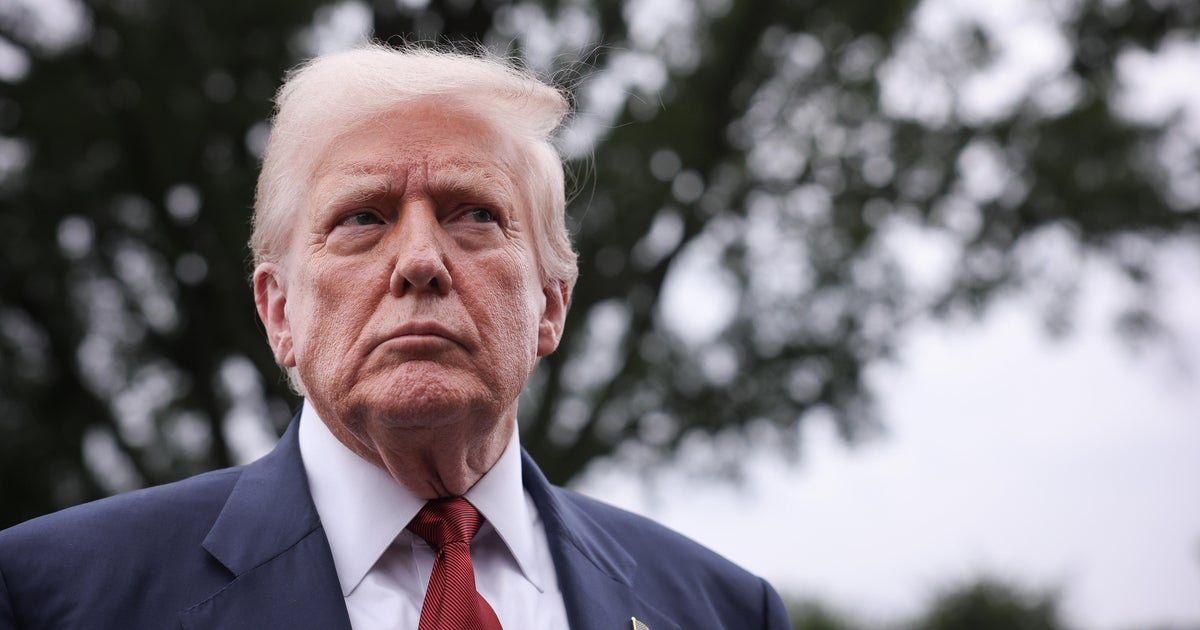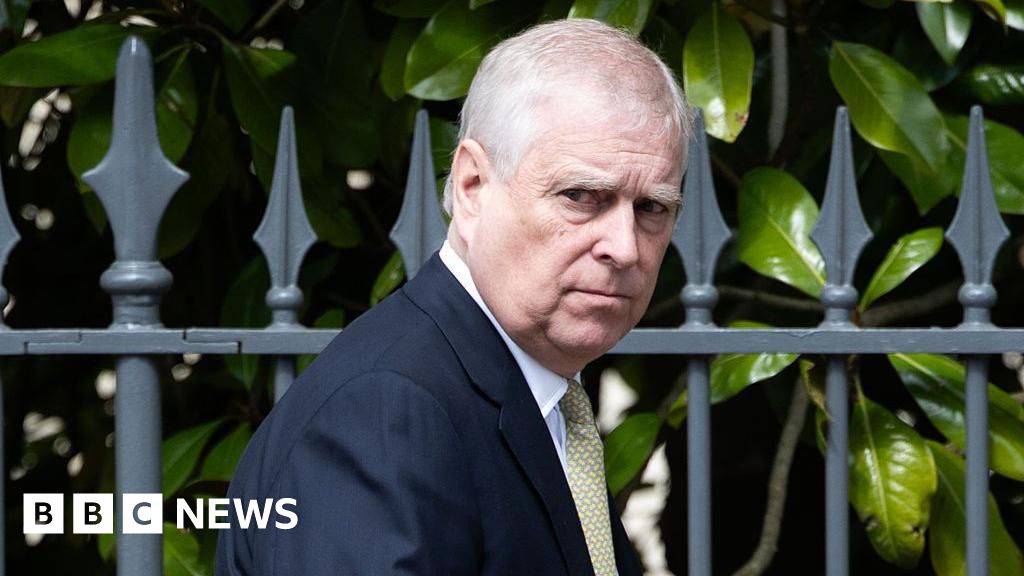The Defense's Argument
#kilmar_abrego_garcia #trump_administration #dhs #kristi_noem #pam_bondi

Introduction
Kilmar Abrego Garcia's legal team is fighting back against top Trump administration officials. Lawyers for Garcia, who is facing deportation, have asked a judge to prevent DHS Secretary Kristi Noem and Attorney General Pam Bondi from making "inflammatory" statements. This request is in response to recent public attacks made by the officials against Garcia and his case.
The Defense's Argument
Garcia's lawyers argue that these attacks are baseless and could unfairly sway public opinion against their client. They also claim that such comments could harm Garcia's case and violate his due process rights. The defense is requesting that the judge prohibits Noem and Bondi from speaking about Garcia's case until it is resolved.
The Impact of Public Statements
Public statements made by high-level government officials, especially in high-profile cases, can have a significant impact on public perception and potentially influence the court's decision. The defense's request to ban Noem and Bondi from making further statements highlights the potential consequences of officials using their platform to make "inflammatory" comments about an ongoing legal case.
About the People Mentioned
Kilmar Abrego Garcia
Kilmar Abrego Garcia was born in July 1995 in the Los Nogales neighborhood of San Salvador, El Salvador. His family faced serious threats from the Barrio 18 criminal gang, which extorted his mother’s small pupusa business and threatened to force his eldest brother, Cesar, into gang membership or kill him. To protect Cesar, the family sent him to the United States. Later, the gang targeted Kilmar as well, leading his family to send him to the US when he was about 16 years old. He crossed the Mexico–US border illegally near McAllen, Texas, around 2011 or 2012 and subsequently traveled to Maryland to live with his brother Cesar, who had become a US citizen. In Maryland, Kilmar Abrego Garcia established a family life after marrying Jennifer Vasquez Sura, a US citizen, in 2016. The couple had one child together, and they raised this child alongside Vasquez Sura’s two children from a previous relationship. All three children have special needs; notably, the son born to Kilmar and Jennifer has autism and a hearing impairment and is non-verbal. Throughout his time in the United States, Abrego Garcia had no criminal charges or convictions, including any gang-related allegations, in either the US or El Salvador. Despite his family ties and lack of criminal record, Kilmar Abrego Garcia was eventually deported to El Salvador. His case highlights the challenges faced by many Central American migrants fleeing gang violence and the complexities surrounding immigration enforcement in the US. His life story is notable for the intersection of family protection, migration under duress, and the impact of immigration policies on individuals with strong family and community connections in the United States.
Kristi Noem
Kristi Noem is a South Dakota politician born on November 30, 1971, in Watertown, South Dakota. She grew up on a family ranch and farm in rural Hamlin County. Noem graduated from South Dakota State University with a Bachelor of Arts degree in Political Science in 2011. She began her political career in the South Dakota House of Representatives, serving from 2006 to 2010, including a stint as Assistant Majority Leader. In 2010, she was elected to the U.S. House of Representatives, representing South Dakota's at-large congressional district for four terms until 2019. In 2018, Noem made history by becoming South Dakota's first female governor. She was reelected in 2022. During her tenure as governor, Noem focused on reducing taxes, cutting regulations, and promoting economic growth. Her approach to the COVID-19 pandemic, which included not implementing statewide lockdowns or mask mandates, garnered national attention. Noem is known for her conservative stance on issues like gun rights and border security. Noem has written two books: *Not My First Rodeo: Lessons from the Heartland* (2022) and *No Going Back* (2024). In January 2025, she resigned as governor after being confirmed by the Senate as the United States Secretary of Homeland Security, the first South Dakotan to hold this position. As Secretary, she oversees a department with over 260,000 employees and a budget exceeding $100 billion. Recently, while in her role as Homeland Security Secretary, Noem was involved in a controversial incident in Los Angeles where a U.S. Senator was forcibly removed from a press conference. Despite this, she continues to be a prominent figure in U.S. politics, particularly in conservative circles.
Pam Bondi
Pam Bondi is an American lawyer and politician who currently serves as the 87th Attorney General of the United States, having been sworn in on February 5, 2025. A fourth-generation Floridian from Tampa, Bondi earned a Bachelor of Arts in Criminal Justice from the University of Florida and a Juris Doctor from Stetson University College of Law. She spent more than 18 years as a prosecutor in Hillsborough County, handling cases ranging from domestic violence to capital murder. Bondi was elected Florida’s 37th Attorney General in 2010, becoming the first woman to hold the position. She served two terms from 2011 to 2019, during which she gained national recognition for her efforts to combat human trafficking, opioid addiction, and fraud. In her first legislative session, she led reforms that shut down 98 unscrupulous clinics contributing to the opioid crisis. She also chaired the Florida Statewide Human Trafficking Council and was appointed to President Trump’s Opioid and Drug Abuse Commission. Bondi played a prominent role in multistate lawsuits against pharmaceutical companies and led a legal challenge to the Affordable Care Act. She was a vocal supporter of President Donald Trump, joining the White House Counsel’s Office in 2019 and serving on the legal defense team during Trump’s first impeachment trial. After leaving public office, she became a partner at the lobbying firm Ballard Partners and held leadership roles at the America First Policy Institute. Bondi was nominated by President Trump to serve as U.S. Attorney General following the withdrawal of his initial nominee, and she was confirmed by the Senate in February 2025. Her career has been marked by a focus on criminal justice reform, public safety, and conservative legal advocacy.
About the Organizations Mentioned
Trump Administration
The **Trump Administration** refers to the executive branch of the United States government under President Donald J. Trump, covering two non-consecutive periods: his first term from 2017 to 2021 and his second term beginning in 2025. As an organization, it is responsible for executing federal laws, shaping public policy, and managing national affairs during its tenure. During the **first Trump Administration (2017–2021)**, the administration pursued a wide-ranging agenda focused on immigration reform, economic nationalism, deregulation, judiciary appointments, and foreign policy shifts. Key actions included building and expanding the U.S.-Mexico border wall—completing 458 miles by January 2021—and implementing strict immigration policies such as travel bans from several predominantly Muslim countries and rescinding the DAPA amnesty program[2]. The administration withdrew the U.S. from the Trans-Pacific Partnership trade deal, renegotiated NAFTA into the USMCA, and signed the "Buy American and Hire American" executive order to prioritize American workers[1][3][5]. Judicially, Trump appointed three Supreme Court justices—Neil Gorsuch, Brett Kavanaugh, and Amy Coney Barrett—significantly influencing the federal judiciary with over 200 judicial appointments[5]. The administration also focused on military expansion, combating ISIS, addressing the opioid crisis, and responding to the COVID-19 pandemic with vaccine development support[5]. Foreign policy was marked by controversial decisions including troop withdrawals from northern Syria, reinforced support for Saudi Arabia, and tensions with Iran and North Korea[4]. The administration faced two impeachments: first in 2019 over Ukraine dealings and again in 2021 following the January Capitol riot; Trump was acquitted by the Senate both times[4][5]. After losing the 2020 election, Trump returned for a **second term starting in 2025**, continuing his policy priorities with new regulatory changes and political appointments[6][8]. The Trump Administration
DHS
## Overview of the Department of Homeland Security (DHS) The Department of Homeland Security (DHS) is a cabinet-level executive department of the U.S. federal government, established in 2003 in direct response to the September 11, 2001, terrorist attacks[1][4]. Its primary mission is to safeguard the United States from a wide range of threats—including terrorism, cyberattacks, natural disasters, and border-related risks—by coordinating efforts across federal, state, local, and private sectors[1][2][4]. With an annual budget of approximately $90–185 billion and over 240,000 employees, DHS is the third-largest federal department, reflecting its broad mandate and operational scale[1][4][6]. ## What DHS Does DHS operates through a network of agencies and directorates, each specializing in different aspects of domestic security. Its core functions include: - **Counterterrorism:** Preventing and responding to terrorist threats, both physical and cyber, through intelligence gathering, law enforcement coordination, and critical infrastructure protection[1][2][4]. - **Border and Transportation Security:** Managing and securing U.S. borders, ports, and transportation systems, including the oversight of Customs and Border Protection (CBP), Transportation Security Administration (TSA), and Coast Guard[1][2][3]. - **Immigration and Customs Enforcement:** Enforcing immigration laws, including the detention and removal of individuals who pose national security or public safety risks[2][5]. - **Cybersecurity:** Defending federal networks and critical infrastructure from cyber threats, while promoting public-private partnerships to enhance national cyber resilience[1][4]. - **Disaster Preparedness and Response:** Leading federal disaster response efforts through the Federal Emergency Management Agency (FEMA), coordinating with first responders, and supporting community recovery[1][3][6]. ## History and Key Achievements DHS was created by the Homeland Security Act of 2002, consolidating

















